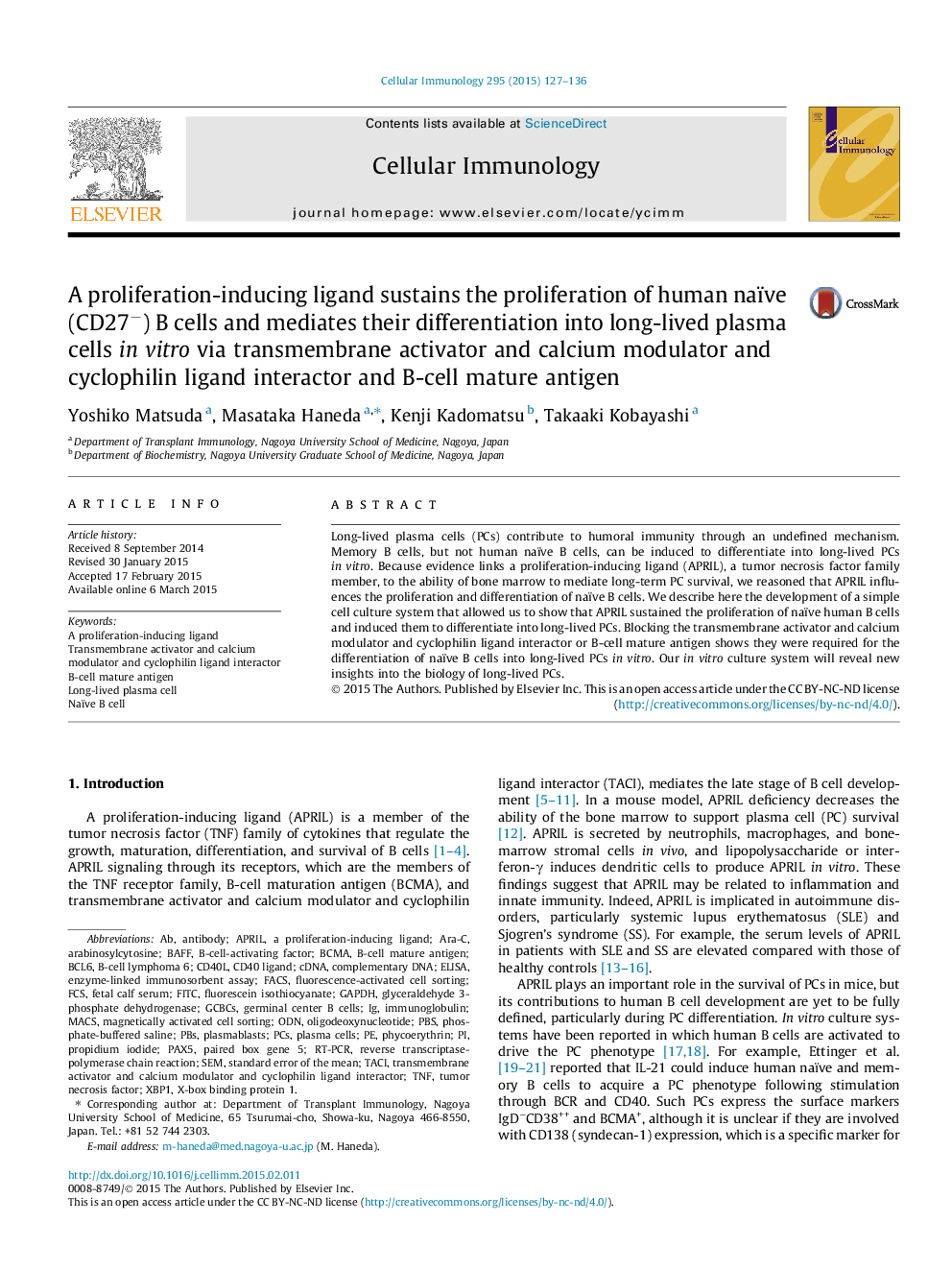| Article ID | Journal | Published Year | Pages | File Type |
|---|---|---|---|---|
| 10926993 | Cellular Immunology | 2015 | 10 Pages |
Abstract
Long-lived plasma cells (PCs) contribute to humoral immunity through an undefined mechanism. Memory B cells, but not human naïve B cells, can be induced to differentiate into long-lived PCs in vitro. Because evidence links a proliferation-inducing ligand (APRIL), a tumor necrosis factor family member, to the ability of bone marrow to mediate long-term PC survival, we reasoned that APRIL influences the proliferation and differentiation of naïve B cells. We describe here the development of a simple cell culture system that allowed us to show that APRIL sustained the proliferation of naïve human B cells and induced them to differentiate into long-lived PCs. Blocking the transmembrane activator and calcium modulator and cyclophilin ligand interactor or B-cell mature antigen shows they were required for the differentiation of naïve B cells into long-lived PCs in vitro. Our in vitro culture system will reveal new insights into the biology of long-lived PCs.
Keywords
FCSarabinosylcytosineB-cell-activating factorB-cell lymphoma 6CD40LBCL6BCMAGAPDHFITCFACScDNAComplementary DNAAra-CAPRILBAFFEnzyme-linked immunosorbent assayELISAfluorescence-activated cell sortingfetal calf serumfluorescein isothiocyanateCD40 ligandAntibodyglyceraldehyde 3-phosphate dehydrogenasea proliferation-inducing ligand
Related Topics
Life Sciences
Biochemistry, Genetics and Molecular Biology
Cell Biology
Authors
Yoshiko Matsuda, Masataka Haneda, Kenji Kadomatsu, Takaaki Kobayashi,
